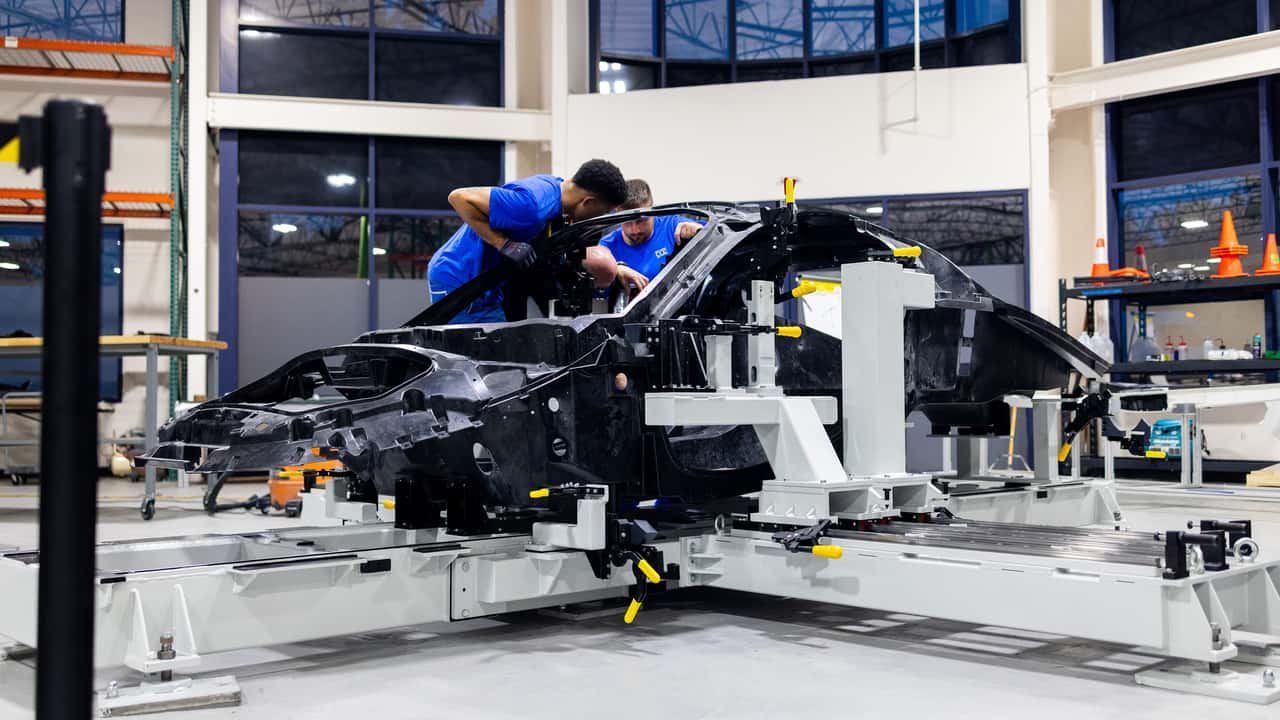California-based Aptera has taken a significant step toward series production by starting to build validation vehicles. This progress is made possible by a new assembly line, where the startup utilizes a large-scale precision assembly fixture to construct validation electric vehicles (EVs) using ready-made components shipped from suppliers.
After years of delays and multiple crowdfunding campaigns, Aptera is steadily moving closer to its goal of creating a usable solar-powered electric car. Transitioning from the prototype stage, the company has begun assembling vehicles on a new validation jig. This approach enables Aptera to develop repeatable manufacturing procedures using supplier-sourced parts rather than relying on custom-made components assembled on a workbench.
Suppliers have already delivered chassis and body-in-carbon (BiC) panels to the company. It’s important to note that this effort is focused on low-volume production — so don’t expect a massive factory filled with automated production lines. Although the operation is small, it aims to provide value for reservation holders and investors alike.
Currently, the validation line centers around a large-scale precision assembly fixture. This setup allows workers to assemble chassis and bodies accurately and consistently, ensuring all vehicles have a uniform appearance. If any issues arise during assembly, engineers and designers can identify and address them before customer vehicles begin production.
Chris Anthony, Aptera’s Co-CEO, commented on this milestone: “This marks an important moment in Aptera’s journey. For the first time, our technicians will be assembling vehicles along a defined sequence of stations, using processes developed hand-in-hand with the engineers who designed them.”
Despite these advances, the timeline for the final product’s release remains uncertain. The startup still needs an additional $65 million to commence low-volume production of the three-wheeled EV. Initially slated for production in 2021, the vehicle’s launch was delayed.
Originally, Aptera planned to power the EV with in-wheel electric motors supplied by Elaphe — the same company behind the motors for the now-defunct Lordstown Endurance pickup. However, this plan was later replaced by a more conventional setup from Vitesco. The chosen drive unit, dubbed the EMR3, integrates a permanent-magnet synchronous motor, an inverter, and a reducer into a single compact unit.
Aptera’s Launch Edition solar EV is priced at $40,000 and promises up to 400 miles of range on a full charge. Additionally, the model’s solar panels can reportedly add up to 40 miles of range per day under ideal conditions. This means that, in theory, owners could complete their daily commutes without ever needing to plug in.
While challenges remain, the production-intent validation vehicle represents a crucial phase in bringing Aptera’s innovative solar-powered car closer to reality.
*Gallery: Aptera Solar EV Production-Intent Validation Vehicle (2025)*
https://insideevs.com/news/778659/aptera-validation-assembly-line/
